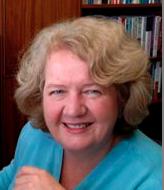Seminar 14th September 2012 1 p.m. 32/3077
Challenges for technology transfer from industry to academia
Judith Bishop
Microsoft Research
- Web page
- http://research.microsoft.com/en-us/people/jbishop/
- Categories
- Complex Systems
- Submitter
- Luke Goater
Judith Bishop, Director of Computer Science, Microsoft Research, will be visiting the University next week and giving a seminar in ECS on Friday 14 September, 1 pm, (32/3077). All welcome.
Challenges for technology transfer from industry to academia Judith Bishop, Microsoft Research, USA
Technology transfer is typically viewed as being from academia to industry but it can indeed go in the other direction. Recently, we have been involved in instances of the other kind of transfer, from a research laboratory to universities. There are many reasons why this kind of transfer takes place. For example, academics want to make use of research tools reported in papers, or they might want to expose their students to new techniques from industry. They can usually find the tool, download it, and work independently. However, many of the usual technology transfer challenges apply – platform suitability, timeliness, support, and community building. Industrial researchers are increasingly finding that in order to collaborate with university researchers, both need to use the same fairly complex underlying tools. Transferring those tools sometimes means transferring whole platforms as well. Furthermore, there is the issue of training the students who will work on the project. Clearly, it would be better if the students had prior exposure to the technology. With the wide variety of courses taught in universities, this requirement can only be met for very fundamental technologies. In addition to software, there is the question of access to data:industry has valuable data that academic researchers would like to use, but privacy and proprietary concerns quickly get in the way.
We have been involved in browser, cloud and API based solutions to some of these challenges. I shall describe the problems, present some examples, and endeavour to draw general conclusions about how industrial research software can be adapted to lower the barriers and make it more accessible to a wider audience.
Biography
Judith Bishop is director of computer science at Microsoft Research,where she works to create strong links between Microsoft’s research groups and universities worldwide. Her expertise is in programming languages and distributed systems, with a strong practical bias and an interest in compilers and design patterns. She initiated the Software Engineering Innovation Foundation (SEIF) and is currently working on a new way of running programs in browsers (especially F#) and on promoting programming on mobile phones with TouchDevelop. Judith has authored more than 95 publications, including 15 books on programming languages that are available in six languages. She serves frequently on international editorial, program, and award committees, and has received numerous awards and distinctions, including the IFIP Outstanding Service Award in 2009 and the IFIP Silver Core Award 2006 for service to the worldwide computer science community. She is a fellow of the British Computer Society, the Royal Society of South Africa, and other prestigious bodies. Judith received her PhD from the University of Southampton under David Barron in 1977. She was a professor at the Universities of the Witwatersrand and Pretoria, as well as a Reader at Southampton before joining Microsoft in 2009. She is an Honorary Professor at the University of Cape Town.
